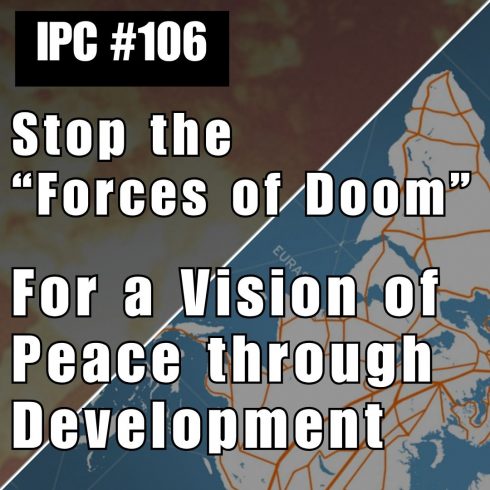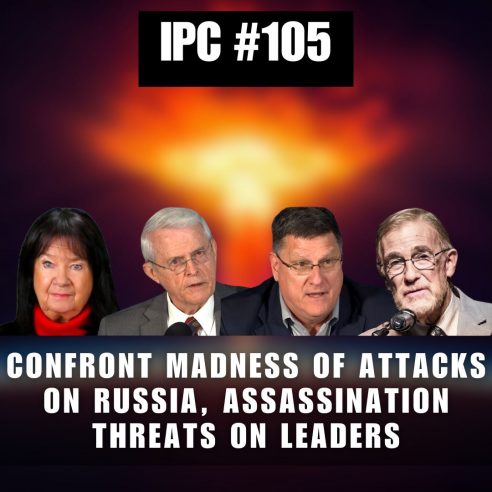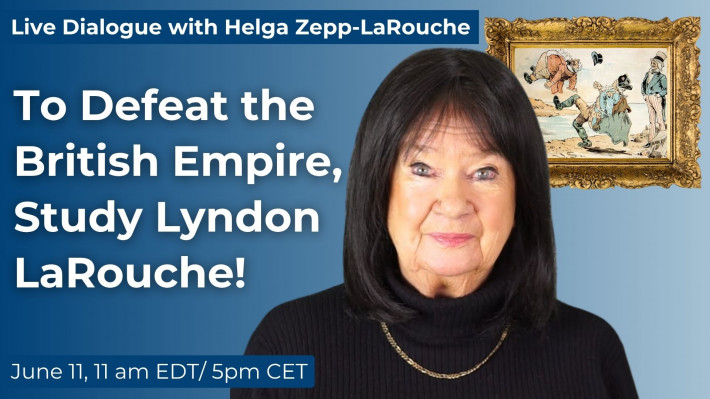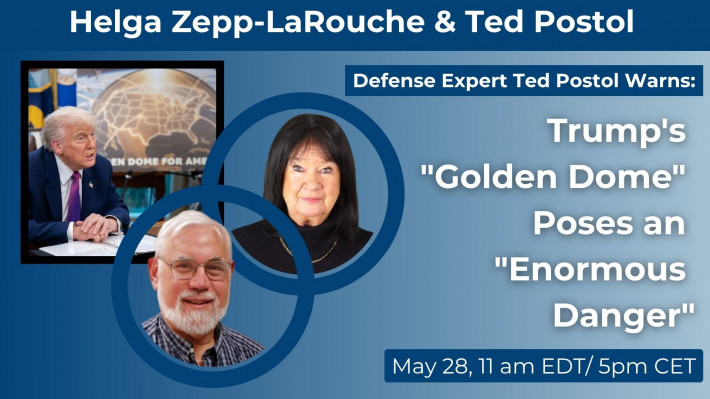by EIR staff
To open the 106th consecutive weekly online meeting of the International Peace Coalition, Helga Zepp-LaRouche, founder of the Schiller Institute, warned that Israel’s attack on Iran may mark the beginning of World War III. She alluded to Director of National Intelligence Tulsi Gabbard’s timely video on the very real threat of a nuclear exchange, and noted that the precisely targeted assassinations of leading Iranian scientists and military and political leaders suggests that Israel received technical assistance from unidentified intelligence services. It is clear that Israel’s objective is to draw the US into the war, and we must remember that Iran is key part of the BRICS and the Belt and Road Initiative. “There was nothing in the behavior of Iran which would have legitimized such an attack… From the standpoint of the UN Charter, this is a completely illegal act of aggression,” she said, and reiterated “our old demand” for a New Security and Development Architecture.
M.K. Bhadrakumar, a former Indian diplomat to the USSR who has held leading positions in the Indian Foreign Ministry, addressed the Israeli attack on Iran: “I never believed that this was about Iran’s propensity or Iran’s likelihood to develop nuclear weapons… there is no moral ground involved here.” Iran is being asked by Trump to give up the same stature as Japan or Germany as a member of the Nuclear Non-Proliferation Treaty, with “full-spectrum inspection” by IAEA. Trump is singularly responsible for this situation. Unless Israel is restrained, which only the US can do, Iran might leave the NPT.
Leading nuclear weapons expert Dr. Theodore Postol, professor emeritus of Science, Technology and International Security at MIT, asserted that “Iran wants to avoid making a nuclear weapon… Iran’s policy is highly rational.” There is internal opposition to this policy, and this opposition is strengthened by the attacks on Iran. “We know from all historical experience that bombing a country brings that country together against the external adversary,” Postol said. On June 1, Ukraine violated a fundamental precept of the Cold War, that one does not attack the strategic forces of any nation. Legally, Russia would have been justified in attacking US and UK, who were clearly involved. Putin is an exceptional leader because he did not react.
Larry Johnson, former CIA officer and a cofounder of Veteran Intelligence Professionals for Sanity (VIPS) , also commented on Iran: “This attack was carried out with the full knowledge and participation of the United States… There is a pattern emerging here that Israel cannot be trusted in any sort of negotiation whatsoever–nor can the United States.”
Regular panelist Ray McGovern is a former Senior Analyst for the U.S. Central Intelligence Agency (CIA) and a Founding Member of Veteran Intelligence Professionals for Sanity (VIPS). He described the situation as nuanced and complex. “What I see as a silver lining here,” he said, is that this may compel more dialogue between the US and Russia. “US complicity is somewhat in doubt, despite the braggadocio… Can the Israelis be restrained when things don’t go quite their way? I don’t think so.”
Zepp-LaRouche responded that we need contextualization for what is happening in the Middle East, that being the attempt to stop the rise of a new system typified by BRICS+. We must not only analyze, but provide an alternative. As long as we are not resolving the underlying conflict with the New Peace and Development Architecture, new hot spots will continue to erupt.
McGovern thanked her for mentioning Gabbard’s unprecedented video.
Gershon Baskin is an Israeli columnist, social and political activist, and a researcher of the Israeli–Palestinian conflict and peace. In a video interview conducted by EIR, he said, “We all know that President Trump is the only person who can tell Netanyahu to end the war.” He welcomed the efforts of former Prime Minister Ehud Olmert to influence Trump, and agreed on the need for an economic solution. “The obstacles to Palestinian development by the Israeli occupation need to be removed… It makes no sense whatsoever for Israel to want to have poor neighbors.”
Zepp-LaRouche commented that it goes beyond the suffering of the Palestinians: “I’m afraid that impact on the moral order of the world will be devastating.”
A scheduled On the Ground Report from the ongoing March for Gaza in Egypt was not possible for technical reasons. However, moderator Anastasia Battle later provided an urgent update: there are reports that the Egyptian government is using force against the marchers. Leaders are prepared to use nonviolent methods to protest if there is repression and activists are deported.
Discussion
TLO President Diane Sare warned that the efforts to impeach Trump could lead to a destabilization of the United States. She observed that Trump “has an enormous ego, and is not a very profound thinker.” But the people leading the campaign against Trump gave us the Ukraine coup and other neocon atrocities. Zepp-LaRouche added that “the migrant issue is being handled in a way that is antagonizing many people.” She reminded viewers that her husband Lyndon advised never to use the military against your own people. “Let’s remove the root causes for the migrant question,” she said, citing hunger, war, etc.
Question: Israel says they attacked Iran to prevent American peace talks from succeeding. Were the talks real, or a setup for the war? Zepp-LaRouche responded that she wishes she knew the answer; the only power which can restrain Israel is the US, “but then he didn’t do it… The picture which comes together is not transparent… it is very much a mixed bag.”
In response to a questioner who raised questions about AI and suggested that we need a social contract, co-moderator Dennis Small attacked the Rousseauvian notion of a contract to reconcile divergent self-interests, as opposed to a concept of the common interests of mankind. He added that AI, like other technological advances, is a double-edged sword.
A woman from Iran asked Zepp-LaRouche whether Israel would even consider an attack on Iran without a green light from the US? She responded that complicity and even aid is very likely, but it is not a simple matter. ”Is the US controlled by the Zionist lobby, or is the Anglo-American Empire using Israel for its own strategic purposes?”
An Indian/Danish journalist cited the India-Pakistan tensions created by the way Britain divided the subcontinent, asking, How do we address the way the British fuel conflicts rather than resolving them? Zepp-LaRouche noted also how Boris Johnson sabotaged Ukraine peace deal. Russian officials are now calling out the British for their role. The story of unprovoked aggression by Russia has been widely discredited. An investigation into the British role is needed
In response to a Colombian labor leader’s question about the encyclical Rerum Novarum, Zepp-LaRouche called it a watershed decision, that the Church should not just pray, but must intervene in social policy.
Question: would there be lasting peace if the Islamic world accepted the Biblical authority of Israel over the land, and the Palestinians were displaced into other Arab states? Zepp-LaRouche declined to comment on any Biblical theories of property ownership. Should the Palestinians pay the price for what the Germans did to the Jews? It’s the perpetuation of injustice, the evil deed giving birth to more evil deeds. The two-state solution is the solution, but there is not enough water to go around without the [[Oasis Plan]] [[ https://schillerinstitute.com/the-oasis-plan-the-larouche-solution-for-southwest-asia/]].




















